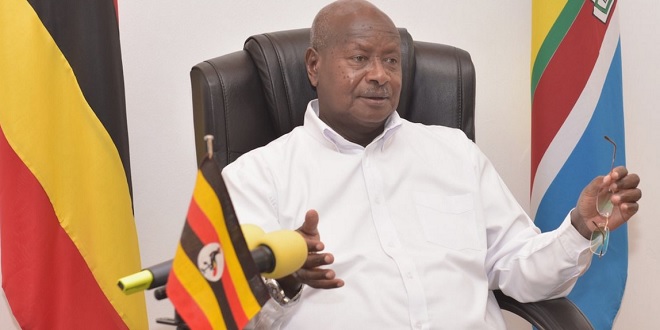
Arthur Makara, the Commissioner in charge of Science Advancement and Outreach at the Ministry of Science, Technology and Innovation told The Independent on Dec. 07 that he is unhappy with the strict liability clause.
Like many other scientists The Independent has spoken to, he says this clause might end up acting as a deterrent to innovation in the country because, “a researcher is already declared guilty even before any investigation is done.”
Makara hopes President Museveni will again seek legal advice on these clauses that are likely to curtail innovation in Uganda.
Phillip Chemonges, the national coordinator of the Open Forum on Agricultural Biotechnology in Africa (OFAB) told The Independent that if President Museveni goes ahead to sign this Bill in its present form, it will be “unfortunate.”
“Uganda wants a law that regulates the science but unfortunately we have some people whose intent is to ban this science,” he says, “The entire Bill apart from some clauses which are key have been hijacked by people who strongly think the country should not have these biotechnology innovations.”
But Dr. Giregon Olupot, a lecturer in the College of Agricultural and Environmental Sciences at Makerere University told The Independent that he is neither for nor against biotechnology. He only wants Uganda to tow the precautionary line.
“Our only problem is that by the time we rose up, the kind of law in place was not meant to regulate but to facilitate the proliferation of GMOs,” he told The Independent, “I am for a law that regulates biotechnology as provided for by the Cartagena Protocol.”
Cautious optimism
Meanwhile, Kirabo says much as they have succeeded in having the safeguard clauses in the law, until the president assents to the law, nothing is guaranteed.
“We know that a lot of politics happens in between Parliament up to the point when the law is gazetted,” she says, “We have experience where things are agreed on the floor of Parliament and by the time the actual Act is gazetted, some of the clauses have been thrown out of the window.”
“At the moment, we believe it is a very good step forward because this law has a strict liability and redress mechanism.”
Kirabo insists that if she had an option, she would convince Ugandans not to open the biotechnology door.
“We don’t have institutions; we don’t have systems or ethics in the country,” she says, “We insist that this technology is risky and it puts our farming system and economy at risk.”
Kirabo also thinks Uganda is missing out on the opportunity of cutting out a niche as an organic food-exporting country in the world.
She says around the globe, countries have consolidated their niches and considering that Ugandan organic food has been selling at a premium in Europe, North America and Japan, this should have been an opportunity for the government.
“The rich economies have demonstrated that they are capable of buying our food at a premium; this is something we needed to consolidate,” she says.
Kirabo also quickly dismisses the idea that biotechnology is meant to save the country from the ever rising incidents of hunger. She says Uganda does not have a problem of food insecurity; instead, it has a challenge of managing the food system.
“It would be interesting to find out why most of the bumper maize harvest the country registered has been allowed to rot yet just months ago, the government was asking for help to stem a food crisis,” Kirabo told The Independent, “If we get hungry in the next couple of months, are we going to claim that it is because we don’t have GM technology?”
 The Independent Uganda: You get the Truth we Pay the Price
The Independent Uganda: You get the Truth we Pay the Price



Huge news out today about the yield and heealth benefits sof GE maize
https://www.sciencealert.com/review-of-6000-studies-over-two-decades-delivers-its-verdict-on-GMO-corn-safety?perpetual=yes&limitstart=1